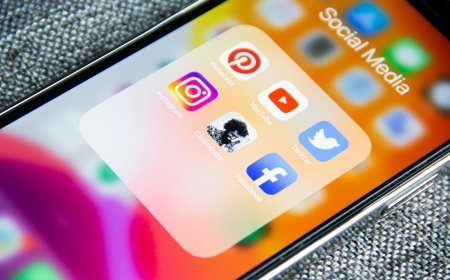Influencer Marketing for Small Businesses: Finding the Right Partners
Learn how small businesses can leverage influencer marketing through micro-influencers and brand partnerships to reach new audiences cost-effectively.

Influencer marketing has evolved beyond celebrity endorsements to become an accessible and effective strategy for small businesses. By partnering with micro-influencers and niche content creators, small businesses can reach targeted audiences authentically while building brand awareness and driving sales within reasonable budgets.
Understanding influencer tiers helps you choose the right partners for your business goals and budget. Nano-influencers (1K-10K followers) often have the highest engagement rates and most affordable rates, making them ideal for local businesses. Micro-influencers (10K-100K followers) offer broader reach while maintaining strong audience connections and reasonable partnership costs.
Finding relevant influencers requires research beyond follower counts to identify creators whose audiences align with your target customers. Use social media search functions, influencer marketing platforms like AspireIQ or Upfluence, and hashtag research to discover content creators in your industry. Focus on engagement rates, audience demographics, and content quality over pure follower numbers.
Vetting potential influencer partners ensures authentic partnerships that benefit both parties. Review their content for brand alignment, check engagement authenticity using tools that detect fake followers, and analyze their audience demographics to confirm overlap with your target market. Quality partnerships with engaged audiences deliver better results than partnerships with large but unengaged followings.
Campaign planning and goal setting establish clear expectations and measurable outcomes for influencer partnerships. Define specific objectives like brand awareness, website traffic, lead generation, or sales conversions. Set realistic budgets, establish content guidelines that maintain brand consistency, and create timelines that allow for quality content creation.
Compensation strategies for influencer partnerships don't always require large cash payments. Micro-influencers often accept product exchanges, especially for items they genuinely use and enjoy. Service-based businesses can offer free services, while others might provide discount codes for the influencer's audience. Negotiate partnerships that provide value to both parties.
Content collaboration ensures influencer posts align with your brand while maintaining the creator's authentic voice. Provide brand guidelines and key messaging points, but allow influencers creative freedom to present your business in their unique style. Authentic content performs better than overly scripted promotional posts that feel like traditional advertisements.
Campaign tracking and measurement help you understand ROI and optimize future influencer partnerships. Use unique discount codes, trackable links, or UTM parameters to monitor traffic and conversions from influencer content. Track engagement metrics like comments, shares, and saves to gauge audience interest and content effectiveness.
Long-term relationship building creates more valuable partnerships than one-off campaigns. Successful influencer relationships often evolve into brand ambassadorships where creators regularly feature your products or services. Ongoing partnerships feel more authentic to audiences and provide consistent brand exposure over time.
Local influencer marketing works particularly well for small businesses serving specific geographic areas. Partner with local bloggers, Instagram accounts, or community figures who have strong local followings. Local influencers often charge less than national creators while providing highly relevant audience reach for location-based businesses.
User-generated content campaigns encourage customers to create content featuring your products or services, extending your marketing reach through authentic customer experiences. Create branded hashtags, run contests or challenges, and feature customer content on your own social media channels. UGC often performs better than traditional marketing content.
Legal considerations and FTC compliance protect both your business and influencer partners from regulatory issues. Ensure all sponsored content includes proper disclosure hashtags like #ad or #sponsored. Create clear contracts that outline deliverables, timelines, usage rights, and compensation terms. Compliance protects your brand reputation and builds trust with audiences.
Platform-specific strategies maximize influencer marketing effectiveness across different social media channels. Instagram partnerships work well for visual products, YouTube collaborations suit educational or demonstration content, and TikTok partnerships can create viral moments for brands targeting younger audiences. Match platform strengths to your campaign objectives.
Budget optimization helps small businesses maximize influencer marketing ROI through strategic planning and creative compensation structures. Start with smaller campaigns to test influencer performance before committing to larger partnerships. Consider bartering arrangements, affiliate programs, or performance-based compensation to minimize upfront costs while incentivizing results.
Ready to amplify your brand reach through authentic influencer partnerships? Connect with content creators and marketing professionals on saneyou.com to find influencers in your niche, or post your own services if you're an influencer or marketing specialist looking to help businesses grow their audience through strategic partnerships.
What's Your Reaction?
 Like
0
Like
0
 Dislike
0
Dislike
0
 Love
0
Love
0
 Funny
0
Funny
0
 Angry
0
Angry
0
 Sad
0
Sad
0
 Wow
0
Wow
0










